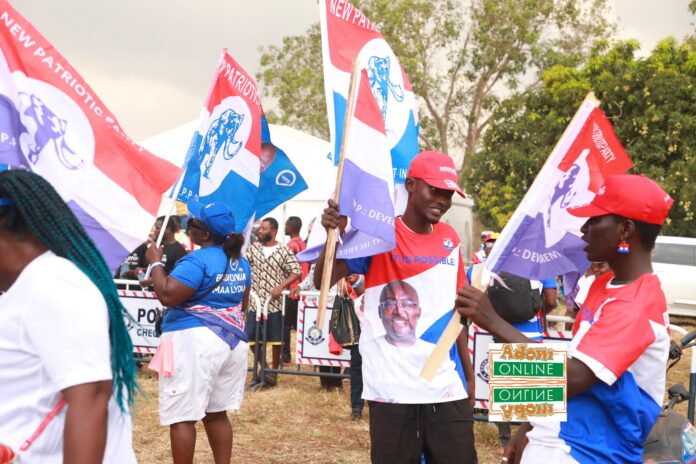The results of Ghana’s December 7, 2024, elections have sparked intense debate about the reasons behind the New Patriotic Party’s (NPP) unexpected and significant defeat.
While there are multiple viewpoints, my goal is not to assign blame, but rather to highlight the chain of events that led to this outcome.
Whether party members showed up to vote or not, the reality is that the result is what matters in the end.
Per the results declared from 267 constituencies, excluding nine constituencies, Mr Mahama polled 6,328,397 votes representing 56.55 per cent of the valid votes cast to beat the current Vice President, Dr Mahamudu Bawumia of the New Patriotic Party (NPP), his closest competitor in the 12-candidate presidential election.
Dr Mahamudu Bawumia got 4,657,304 votes, representing 41.61 per cent of the valid votes cast. Voter turnout based on 267 constituencies is 60.9 per cent.
One argument that has gained traction is that NPP members failed to vote, contributing to the party’s loss under the leadership of Dr. Bawumia – making it look like the incumbent plied on the right path, but electorates only failed to show up.
However, this explanation is not logically sound. The question we must ask is: What led to the NPP members’ failure to show up at their respective polling stations?
Across several strongholds of the NPP, particularly in the Ashanti Region, there were numerous reports of members choosing not to vote. Why did this happen? The answer is simple: Many of them were simply tired of their party.
If they had faith in the party’s ideology and performance, they would have been motivated to cast their ballots.
Furthermore, those who were allegedly paid and bussed to various constituencies also displayed similar apathy, some even choosing to support the opposition.
This raises the critical question: Would these disenchanted party members have voted for Bawumia or any other candidate from the NPP? The answer is clear—no.
There were, of course, several contributing factors to the party’s defeat, including the weak fight against corruption, inflation, and internal political struggles within the NPP. In all, the NPP made the NDC party somewhat attractive over the years.
However, I won’t focus on these obvious issues. What is more important now is understanding that the loss is a reflection of the people’s discontent.
As the saying goes, “vox populi, vox Dei,” meaning “the voice of the people is the voice of God.”
This election result is a clear indication that the people were no longer willing to side with the incumbent party. A 56.55% win for Mahama, along with the NPP’s loss of a parliamentary majority, sends a strong message: “We are tired of you.”
Let the NPP not make excuses for this defeat. If people are unwilling to vote for you, it’s a clear sign of dissatisfaction with your performance. And to those who made the effort to vote, their decision should not be undermined.
While the shock of the outcome is undeniable, recovery is crucial for the NPP. The party must reflect on why it failed to rally its supporters, particularly those who should have been most motivated to vote for a party in power.
Nonetheless, the question remains: Why would anyone, with their party in power, choose not to vote?
It’s something worth pondering deeply.

